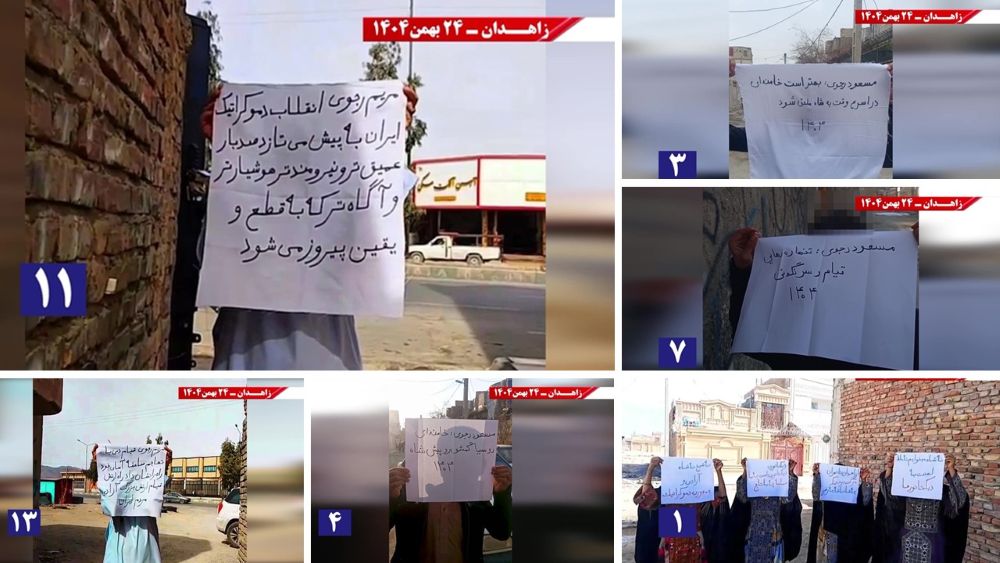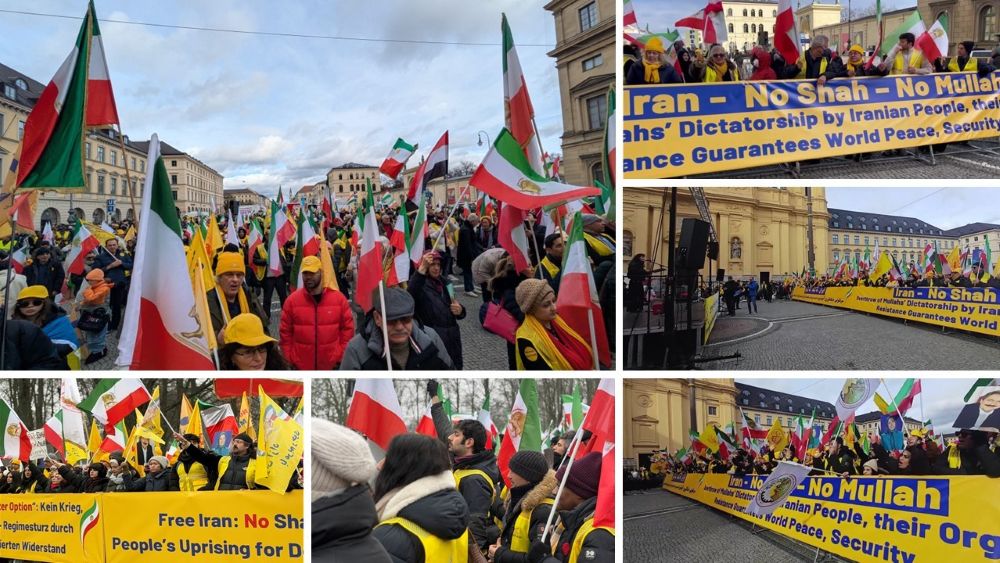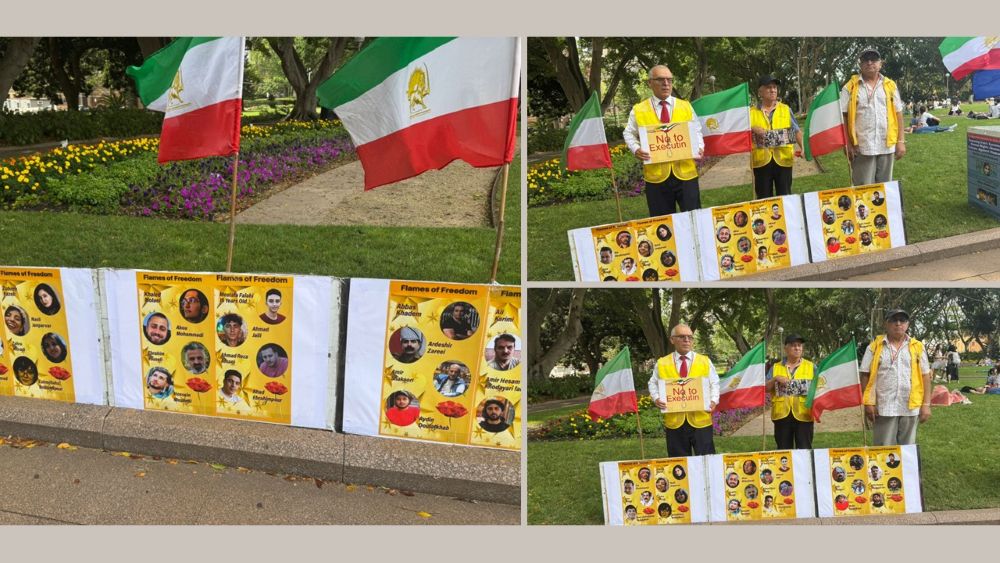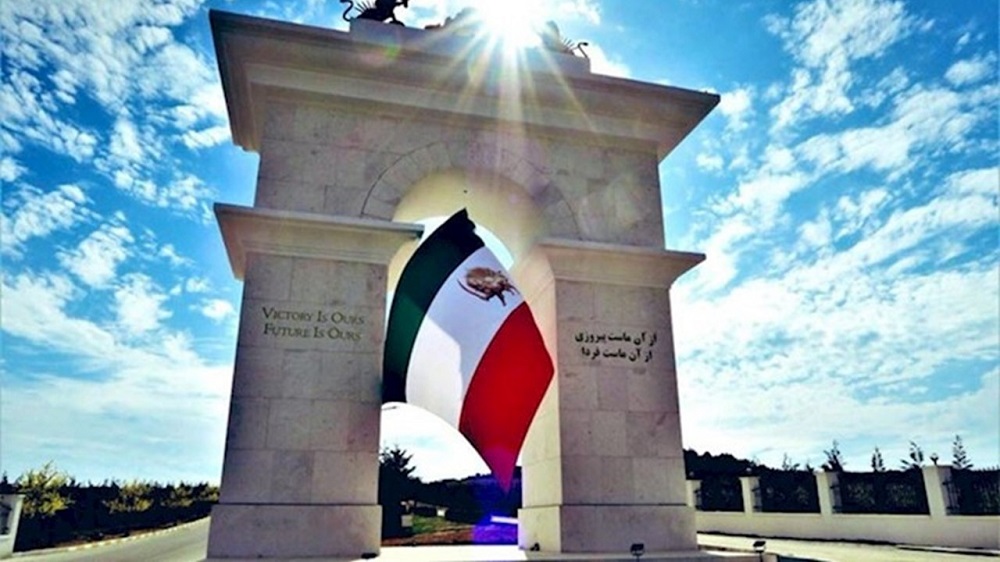
On July 11, 2019, Ashraf 3, a small but modern city in Albania, opened its doors to delegations from Europe, U.S., Arab countries and other nations across the world.
On July 13, more than 300 dignitaries from 47 countries attended a conference in Ashraf 3, organized by the People’s Mojahedin Organization of Iran (PMOI/MEK) and the National council of Resistance of Iran (NCRI), the main opposition to the Iranian regime. Ashraf 3, located in Manz, near the capital Tirana, is home to members of the MEK who were relocated from Iraq to Albania in 2016.
More than 2,500 MEK members built Ashraf 3 in the short period of one-and-half years.
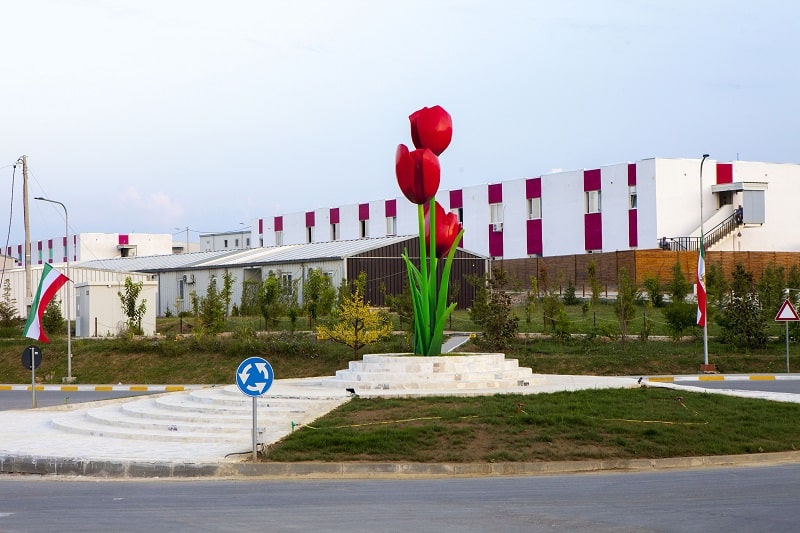
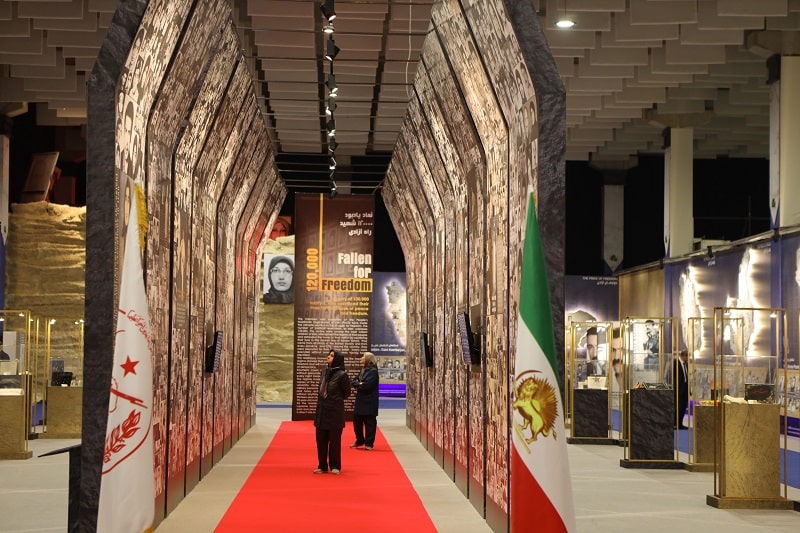
The history of MEK and the naming of Ashraf
Ashraf Rajavi was a prominent female political prisoner in the era of Shah, who ruled Iran before the 1979 revolution. Ashraf, among the political leaders of the MEK, was murdered by the mullahs’ regime on February 8, 1982, along with Mussa Khiabani, another senior MEK official, and other members of the MEK. Her dedication to freedom and her sacrifices turned Ashraf into a symbol for the MEK and the Iranian people, especially the women who were under the repression of the mullahs.

In later years, when MEK members were forced to leave Iran, they built a city in memory of Ashraf in Iraq’s Diyala province. During three decades, through their hard toil, MEK members turned a desolate patch of land in the middle of the desert into beautiful city.
In 2003, after the invasion of Iraq by American forces, members of the MEK, who were organized into a well-trained army with more than a dozen bases across Iraq, entered an agreement with U.S. forces to voluntarily turn over their weapons and gather in Ashraf. In exchange, the U.S. committed itself to protecting MEK members in Ashraf against the terrorist attacks of the Iranian regime.
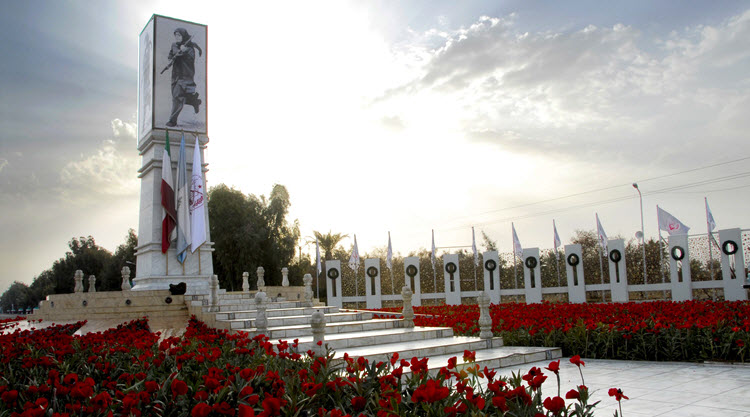
In the following years, MEK members continued to develop their city, building hospitals, universities, stadiums, industrial complexes, mosques, museums and more. Between 2003 and 2009, hundreds of thousands of Iraqis and political dignitaries from European Parliament and other countries traveled to Iraq to visit Ashraf and meet with the MEK.
Mr. Alejo Vidal Quadras, then-Vice President of the European Parliament, traveled to Ashraf along with a delegation from the European Parliament, and after speaking to MEK members, described Ashraf as a “pearl in the desert.”

In 2009, U.S. forces handed over the protection of Ashraf and MEK members to the Iraqi government. Afterwards, Iraqi Prime Minister Nouri al-Maliki, who was under the influence of the Iranian regime and took his orders from Tehran, imposed a medical and logistical siege on the MEK members in Camp Ashraf. He also prevented Iraqi and foreign citizens from entering Ashraf and meeting with the MEK.
During the same period, the Iranian regime, with the help of its agents in the Iraqi government, installed 320 loudspeakers around Ashraf. For nearly two years, the regime used these loudspeakers to wage a psychological war against the MEK members in Ashraf. Meanwhile, under the orders of al-Maliki, Iraqi forces attacked Ashraf on several reprises and killed nearly 50 MEK members and injured more than 1,000 others. Many others died as a result of the medical siege.
Finally, in 2011, under an agreement forged between the MEK, the UN, and the government of Iraq, the residents of Ashraf relocated to Camp Liberty, an obsolete U.S. base near the Baghdad International Airport. The conditions of the new camp were like a prison, and while the representative of the UN had promised that Camp Liberty would be a temporary transit location, the MEK members stayed there in harsh conditions until by September 2016, they were all relocated to different European countries, mostly Albania.
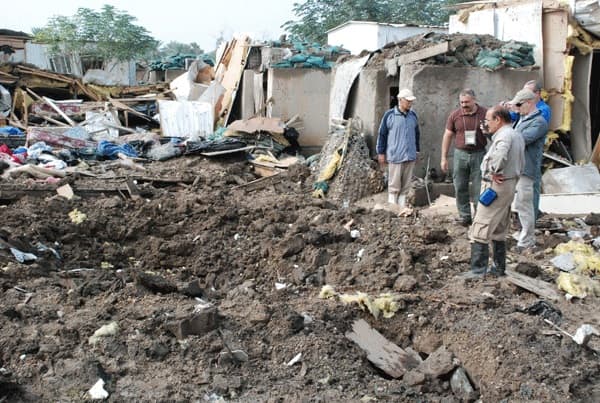
During the time that MEK members were in Camp Liberty, the agents of the Iranian regime continued to persecute them and impose the medical and logistical siege. Moreover, Iraqi militia forces tied to the Iranian regime colluded with the IRGC and the Iranian regime’s embassy and launched several rocket attacks against the camp, resulting in the death of dozens of MEK members.
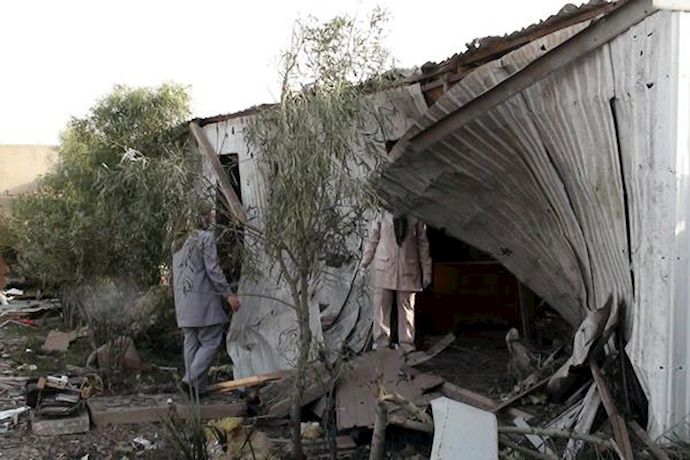
Despite the severe restrictions imposed on them, the MEK members managed to transform Camp Liberty from a desolate patch of land to a beautiful compound, flourishing with trees and flowers and parks. They named it Ashraf 2.
After their transfer to Albania, the members of the MEK were first scattered in different locations in Tirana, the capital of Albania. After that, they went to a location in Albania’s Durres province, near the city of Manz, where they got a patch of farming land, and during one-and-half years, they turned it into a beautiful city they called Ashraf 3.
On July 13, 2019, the MEK hosted a large international conference in Ashraf 3, attended by dignitaries such as Rudy Giuliani, former mayor of New York, Joseph Lieberman, former U.S. vice presidential candidate, Stephen Harper, former Canadian Prime Minister, John Baird, former Canadian Foreign Minister, Sid Ahmed Ghozali, former Algerian Prime Minister, Bernard Kouchner, former French Foreign Minister, Michelle Alliot-Marie, former French Foreign and Defense Minister, Ingrid Betancourt, former Columbian presidential candidate, and delegations and dignitaries from 50 countries, including Germany, France, Italy, UK and Albania.
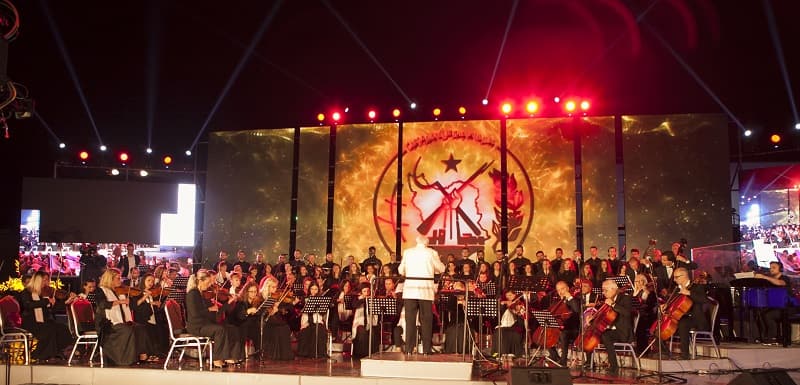
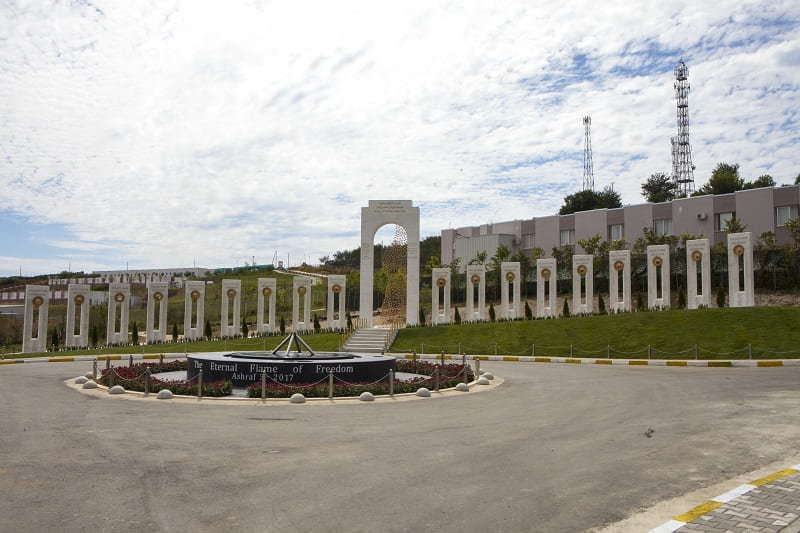
What the world is saying about Ashraf 3, the new home of the MEK:
Jean-Francois Legaret, Mayor of Paris’ 1st District: We have decided to declare Ashraf 3 a city of international dialogue and a sister city of the 1st Arrondissement of Paris.
Sid Ahmed Ghozali, Former Algerian Prime Minister: Ashraf 3 represents a new culture; they are symbols for development and progress.
Elona Gjebrea, Member of Parliament of Albania: Ashraf 3 is a symbol for freedom and future.
Pandeli Majko, The State Minister for Diaspora, Former Prime Minister of Albania: Ashraf 3 is like a real institution of friendship
General (ret.) George W. Casey Jr. 36th Chief of Staff of the United States Army: You have cemented both literally and figuratively Ashraf 3 as the global center for democratic resistance to the Iranian regime
Bernard Kouchner, Former French Foreign Minister: Ashraf 3 is a fantastic masterpiece of art and friendship
Joseph Lieberman, Former U.S. Senator: Ashraf 3 is the best testament to the fact that this movement presents a viable alternative to the regime.
American Dignitaries: Ashraf 3 is evidence of what can be created in Iran.
Michelle Alliot-Marie, former French Minister of Defense, Foreign Affairs and Interior: What you created in such a short time, we as the French government couldn’t have done it.
Rudy Giuliani, former Mayor of New York City, lawyer to U.S. President Donald Trump: I feel an optimism maybe because you’ve done a miracle here in Ashraf. If we were to build this in New York City, it would take 15 years and 14 corruption investigations.
David Amess, UK Parliament Member: What an example to build this wonderful camp in such a short time… these wonderful people have gone on and built this camp and it is absolutely magnificent.

